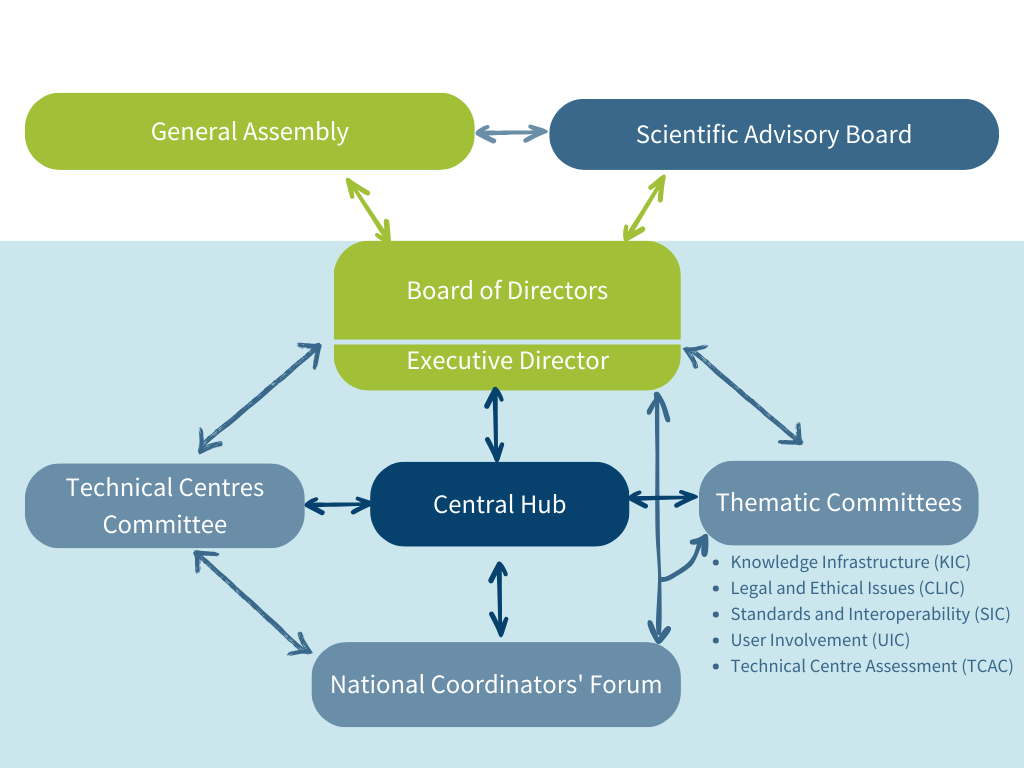The CLARIN infrastructure is governed and coordinated by CLARIN ERIC, which is a consortium of countries, represented by their ministries (see more details on the legal status of European Research Infrastructure Consortium as stated by European Commission). The Statutes of CLARIN ERIC describe all governance aspects in full detail.

The highest decision-taking body in CLARIN ERIC is the General Assembly (GA), consisting of representatives of the ministries or funding agencies of the member countries. It is assisted by an international Scientific Advisory Board (SAB).
The day-to-day management is in the hands of the Board of Directors (BoD) which receives its guidelines from the GA, as well as input from other committees. It reports to the GA.
The National Coordinators' Forum (NCF) and the Technical Centres Committee (TCC) are the CLARIN ERIC bodies through which the cross-centre and the cross-country collaboration, integration, and interoperability of the infrastructure components are ensured. The NCF and the TCC are responsible for ensuring the coordination of the implementation of the GA’s policies and strategies. Instructions from the GA go through the BoD to the NCF and TCC, and both report to the BoD.
Five Thematic Committees are in place to help implement the strategies. They report to the BoD:
- Knowledge Infrastructure Committee (KIC)
- Legal and Ethical Issues Committee (CLIC)
- Standards and Interoperability Committee (SIC)
- User Involvement Committee (UIC)
- Technical Centres Assessment Committee (TCAC)
The Central Hub is the operational hub of the research infrastructure and is based at the Faculty of Humanities of Utrecht University in the Netherlands. It coordinates the activities carried out jointly with its members, and supports the General Assembly, the Scientific Advisory Board, the Board of Directors, the National Coordinators' Forum, the Technical Centres Committee, and the Thematic Committees. It sets up and manages the technological foundation of its data, tools and services, manages the financial planning, events and communication activities, and participates in EU and internal projects.